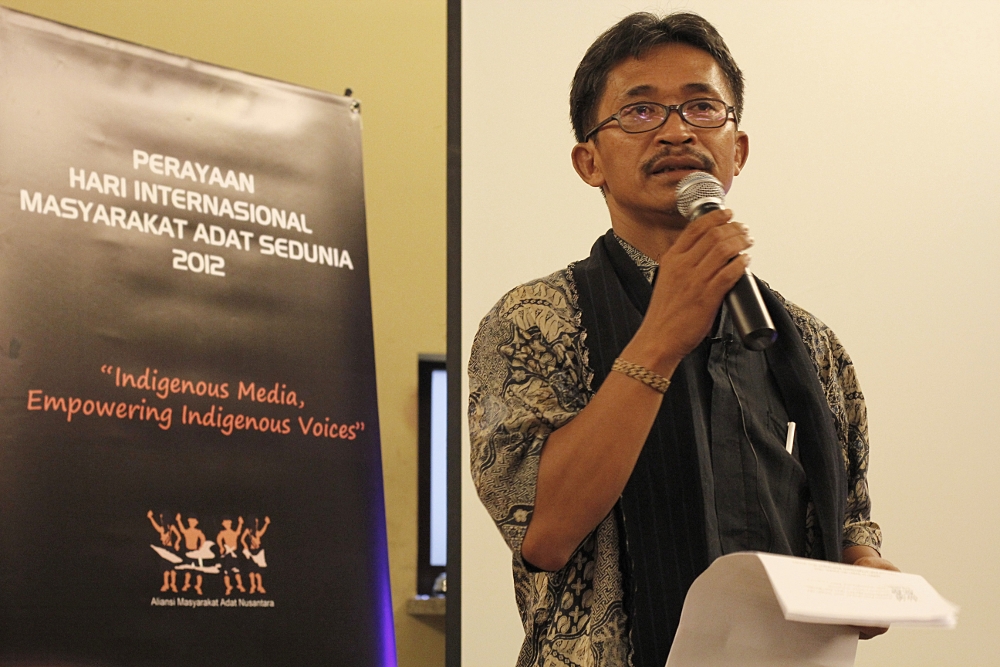12-13 March 2013
Kuala Lumpur, Malaysia
Lands, Territories and Resources with Focus on Extractive Industries
Delivered by: Patricia Miranda Wattimena
Aliansi Masyarakat Adat Nusantara (AMAN) is an umbrella organization of indigenous peoples in Indonesia. Based on the consultation and coordination among our networks and national partners, this statement highlights the country situation and represents collective view of indigenous peoples in Indonesia.
Activity of extractive industries carried out in and/or near the territories of indigenous peoples in Indonesia has led to the deprivation of land, livelihoods, resources and various fundamental elements of indigenous peoples’ life and custom. Several cases of land conflicts emerging from the deprivation of indigenous peoples’ land by the government and companies without any free, prior and informed consent of the respective indigenous communities are highlighted in our country report.
In addition, the police and military as well as security forces hired by the company are often engaging in a quite violent way to counter the protests of indigenous peoples, whereby completely ignoring and violating the human rights of indigenous peoples as ensured in the UN Declaration on the Rights of Indigenous Peoples (UNDRIP).
Moreover, with particular regard to the extractive industry, indigenous peoples are suffering from further negative impacts such as environmental degradation and destruction of the ecosystem that not only affect the health, but also livelihood, traditional and customary system or way of life, as well as cultural activities.
At the same time, one of the root causes of issues affecting indigenous peoples in Indonesia in terms of land, territories and resources, is the non-recognition of the rights, land ownership, customary laws and systems of indigenous peoples by Indonesian government.
Against this backdrop, we recommend the Special Rapporteur to:
- Include country specific section in his study regarding the situation of indigenous peoples in Indonesia affected by extractive industry;
- Conduct thematic study on the development projects affecting indigenous peoples in Indonesia;
- To urge the government of Indonesia to:
- Recognize the existence and rights of indigenous peoples in Indonesia and immediately enact the Draft Act on the Recognition and Protection on the Rights of Indigenous Peoples;
- Respect, protect, and promote traditional occupations and livelihood systems and practices of indigenous peoples in accordance with Article 26 of UNDRIP;
- Provide appropriate compensation and other corrective measures to the indigenous peoples impacted by extractive industry activities;
- Recognize and respect the initiatives and actions of indigenous peoples as well as the supporting organizations to promote indigenous peoples’ rights based on international human rights laws and standards;
- Review and amend national laws and policies related to extractive industries as well as the management of natural resources to fully respect the collective rights of indigenous peoples. Those reviews and amendments must be carried out with full and effective participation of indigenous peoples.

